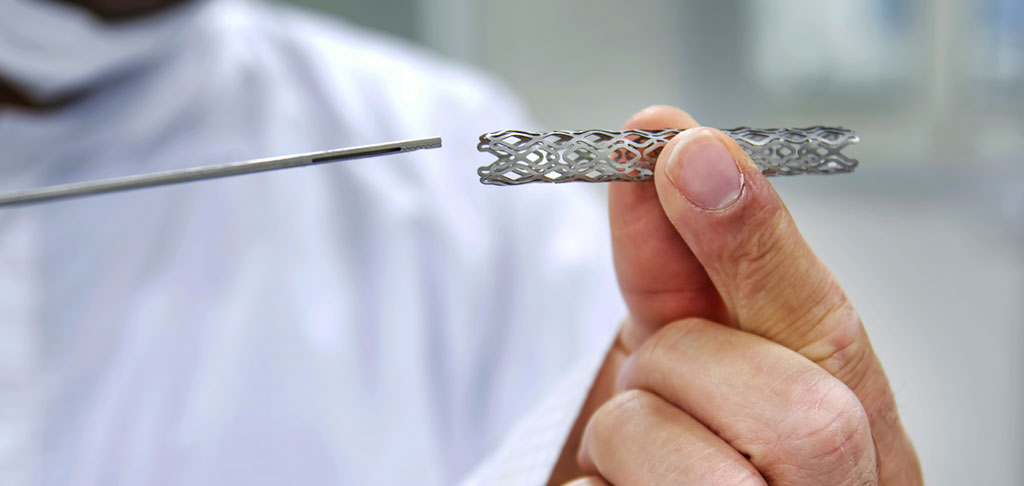Part 18: Chemical Characterization of Materials
Home » Part 18: Chemical Characterization of Materials
EAG Laboratories applies vast experience with the materials that go into medical devices to assist our clients with performing the necessary chemical characterization studies per 10993 Part 18. Our scientists can help you move efficiently through the FDA approval process, providing robust data for toxicological evaluations.
How do I comply with ISO 10993-Part 18?

Standards for evaluating the biocompatibility of medical devices have been in effect for over ten years, yet recent FDA guidance emphasizes the importance of chemical characterization of materials. This includes understanding the chemistry of medical device components, as well as the materials used during the manufacturing process and production.
Also known as Chemical Characterization of Materials, Part 18 activities help assess a device’s overall biological safety, measure leachables, evaluate material equivalency and help screen new materials for suitability.
Part 18: A Step Process
ISO 10993-18 offers a five-step process for evaluating the biological safety of medical devices:
- Step 1 – Qualitative Information
- Step 2 – Material Equivalence
- Step 3 – Quantitative Information
- Step 4 – Quantitative Risk Assessment
- Step 5 – Estimated clinical exposure to chemicals present
Extractables and Leachables for Medical Devices
Exposure to low level chemistries in medical devices can pose a safety risk to patients. The first step to evaluating potential risk is to identify the chemistries extracted under aggressive conditions. Once the chemistries are identified, a toxicologist can perform a toxicological risk assessment to evaluate safety. A leachable study can be performed using conditions to mimic real use scenarios to determine the potential for identified chemistries to leach out of the product. EAG has expertise in extractables and leachables studies for pharmaceuticals, medical devices and consumer products.
Characterizing Materials for Devices
EAG is well-known for our materials characterization expertise, due to our over 40 years of experience analyzing materials and components, plus our vast array of techniques and instrumentation. Medical devices are often composed of a variety of chemistries, materials and components including as examples metals, polymers, electronic components, critical surface chemistries, etc. We have developed numerous analytical methods to answer difficult technical questions giving our customers insight into low level chemistries, thin surface coatings, and contaminants.
Deformulation (Reverse Engineering)
EAG is the industry leader in the deformulation of products and materials. Also known as reverse engineering, deformulation is the separation, identification and quantitation of ingredients in a formulation. Our experienced chemists have performed deformulations on hundreds of products and have the skills and tools to successfully deformulate the most difficult materials.
Process Validation
As defined by FDA 21 CFR Part 820, where the results of a process cannot be fully verified by subsequent inspection and test, the process shall be validated with a high degree of assurance and approved according to established procedures. We support the process validation activities for medical device development by providing reliable analytical results to ensure stability in the manufacturing process. Often this involves developing an appropriate analytical method to test samples taken during process validation and evaluate for reproducibility in critical characteristics.
Equivalency Studies
Changes in manufacturing processes of medical devices are inevitable. The changes could be due to a manufacturing site change, sterilization process change, process aid change, etc. The impact on the biocompatibility from these changes must be evaluated as described in ISO 10993 part 1. An important tool to assess these changes is to evaluate the extractables profile from the device manufactured under the original conditions and compare to the extractables profile of the device manufactured under the new conditions.
Of utmost importance is to determine the critical chemistry components have not changed with modifications to the process. This can be evaluated through a comprehensive chemical comparative study to investigate the extractable profiles and/or surface chemistries. Regardless of the change, please contact your EAG experts to help design an analytically sound equivalency study that meets the regulatory requirements.
EAG Laboratories: Material Characterization Experts
When you have questions about your material’s chemistry, EAG Laboratories provides comprehensive data for FDA submissions, innovation and product improvement. From polymers to alloys to ceramics, we understand how these materials impact safety and effectiveness. With over 25 years of experience evaluating materials for Class II and III medical device materials, combined with a full suite of analytical tools, EAG offers reliable answers to materials characterization challenges.
Would you like to learn more about using Part 18 testing?
Contact us today for your Part 18 chemical characterization of material needs. Please complete the form below to have an EAG expert contact you.